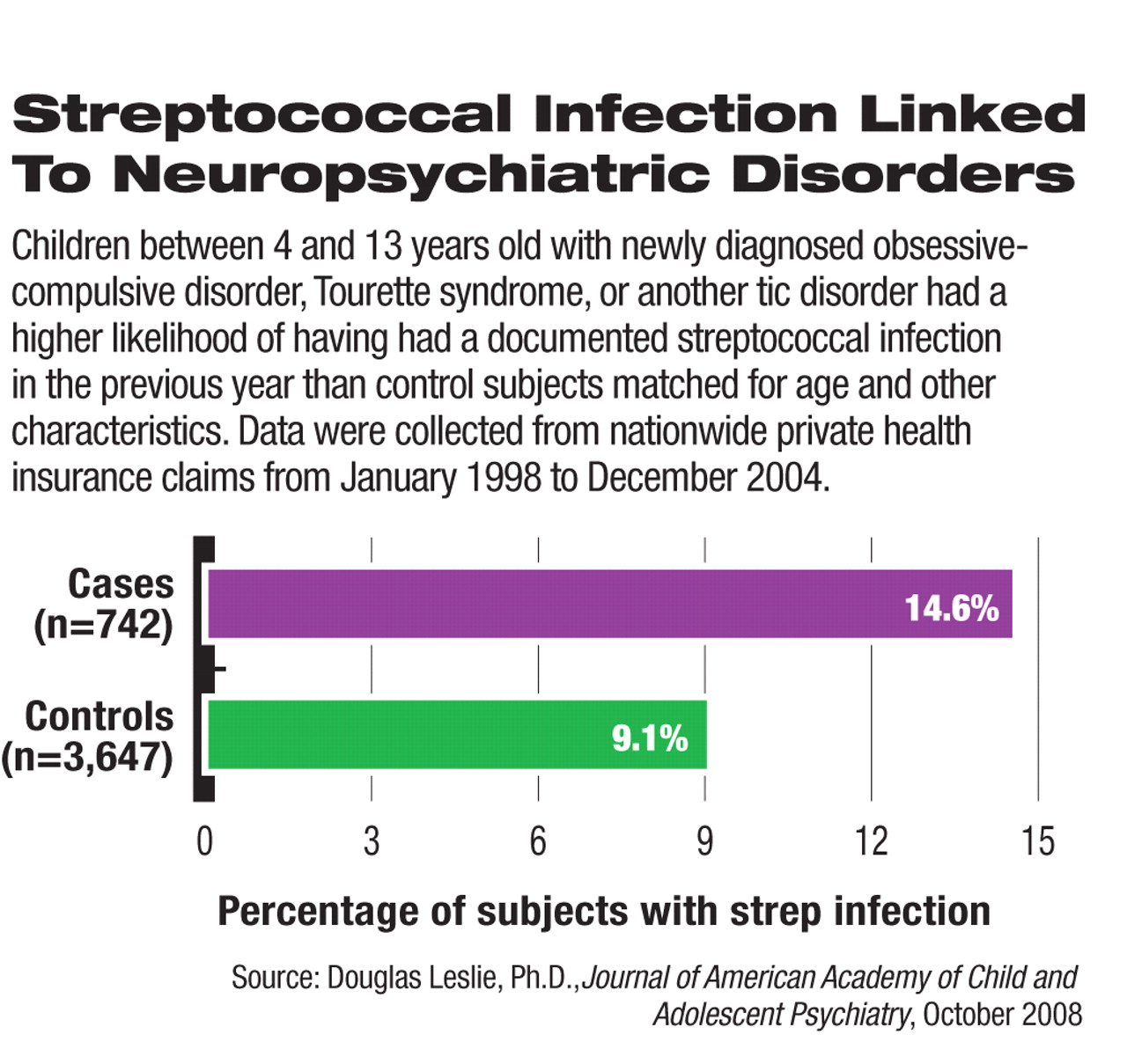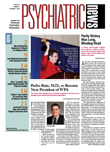Scientists have found new evidence to support a connection between streptococcus infection and neuropsychiatric disorders in children, a study in the October Journal of the American Academy of Child and Adolescent Psychiatry reported.
A connection between streptococcal infection and obsessive-compulsive disorder (OCD), Tourette syndrome (TS), and tic disorder was originally proposed by Susan Swedo, M.D., a senior investigator at the National Institute of Mental Health, and colleagues. They systematically collected a series of 50 pediatric cases and published their observations in the February 1998 American Journal of Psychiatry.
Swedo and colleagues believe that there is a unique group of young patients (aged 6 to 7, on average) who develop acute, episodic neuropsychiatric symptoms following an infection with group A β-hemolytic streptococcus, possibly mediated by autoimmune response that attacks neurons in the basal ganglia. These authors termed it “pediatric autoimmune neuropsychiatric disorders associated with streptococcal infections (PANDAS).”
Several previous studies have generated evidence to support this phenomenon, but controversies remain over the validity and pathogenesis of the PANDAS diagnosis. In the new study, Douglas Leslie, Ph.D., of the Department of Health Administration and Policy at the Medical University of South Carolina, and colleagues conducted a retrospective case-control study and found a significant association between streptococcal infection and subsequent emergence of several neuropsychiatric disorders including not only OCD, TS, and tic disorder, but also attention deficit/hyperactivity disorder (ADHD) and major depression.
The authors extracted 742 cases of newly diagnosed OCD, TS, and tic disorder in children aged 4 to 13 from a national database of aggregate health care claims from 60 private insurance companies from January 1998 through December 2004.
They also constructed two additional, separate cohorts of children in the same age range: those who were newly diagnosed with ADHD (n=3,650) and those newly diagnosed with major depressive disorder (n=342). Each of the three cohorts was compared with a random sample of controls matched for date of insurance enrollment, birth year, sex, and ZIP code. The size of each control group was at least five times that of the case cohort.
Because ADHD is a common comorbidity for OCD, TS, and tic disorder, the cohort for ADHD and the combined cohort for OCD, TS, and tic disorder were designed to be mutually exclusive, meaning that children with diagnoses of ADHD and OCD, TS, or tic disorder were not included in either cohort.
Children with newly diagnosed OCD, TS, or tic disorder were 50 percent more likely than their matched controls to have had a diagnosis of streptococcal infection in the previous year, which was statistically significant (odds ratio 1.54, 95 percent confidence interval 1.29 to 2.15). In addition, children with ADHD or depression were also significantly more likely than their controls to have had streptococcal infection in the previous year (odds ratios 1.20 and 1.63, respectively).
“I was very surprised to see the significant [association] with depression,” said Leslie in an interview with Psychiatric News. He explained that the reason for extracting data on depression had originally been to get a sense of the specificity of the connection between streptococcal infection and neuropsychiatric symptoms. They had not expected to see a significant association in all three case cohorts.
The pathophysiology of this possible link between pediatric neuropsychiatric disorders and streptococcal infection, which seems to affect only a subset of patients, is far from being understood. There are also no evidence-based guidelines for treatment, such as using antibiotics or immunotherapy, for children with neuropsychiatric symptoms who are suspected of having PANDAS.
The study was supported in part by grants from the National Institutes of Health.
An abstract of “Neuropsychiatric Disorders Associated With Streptococcal Infection: A Case Control Study Among Privately Insured Children” is posted at<www.jaacap.com/pt/re/jaacap/abstract.00004583-200810000-00011.htm>.▪

